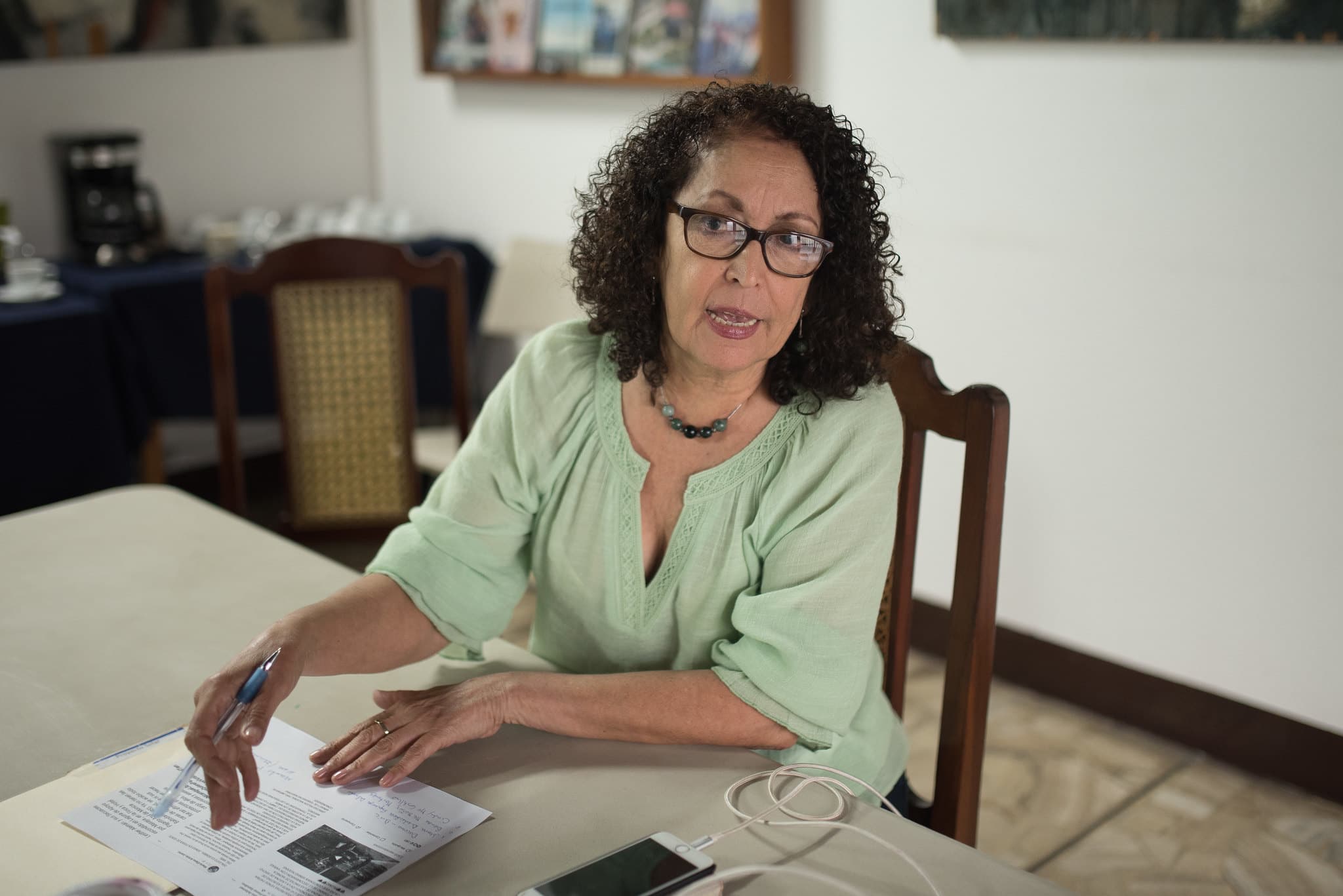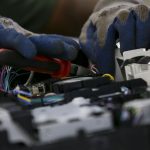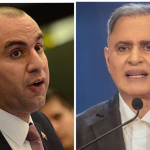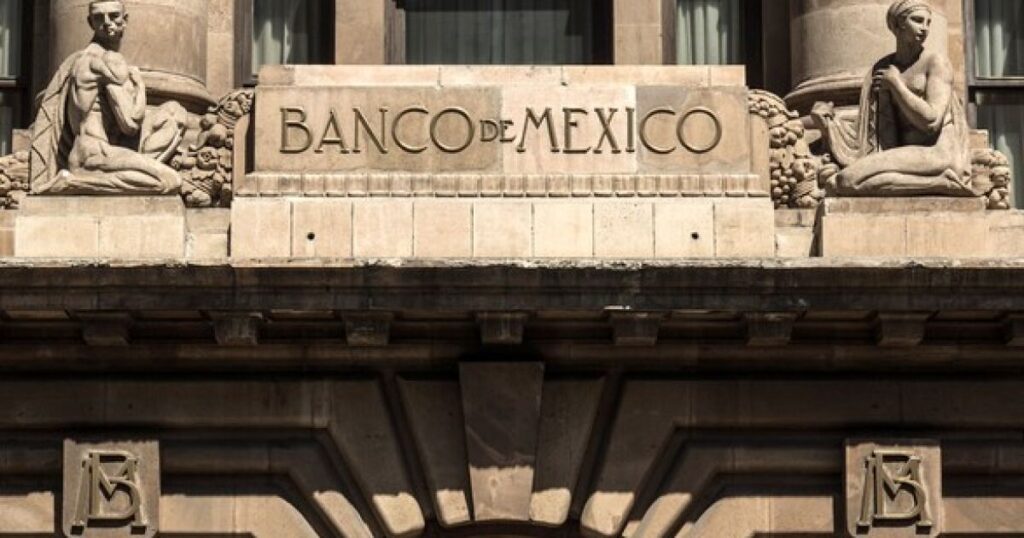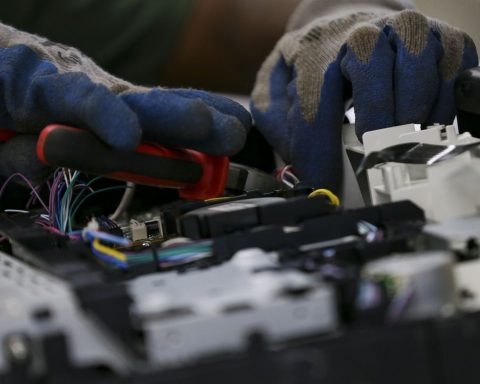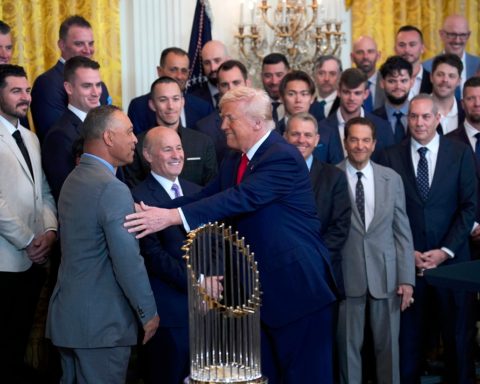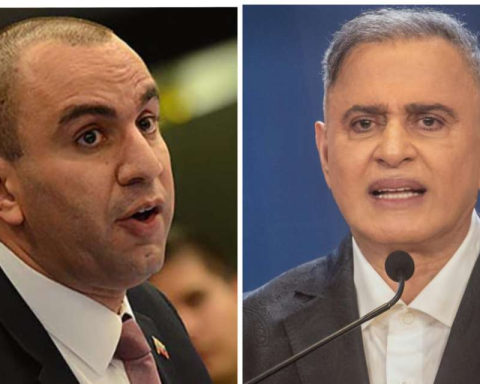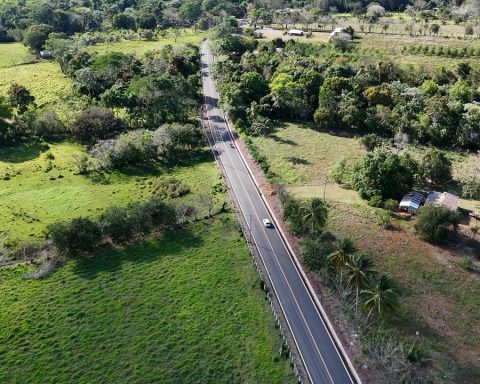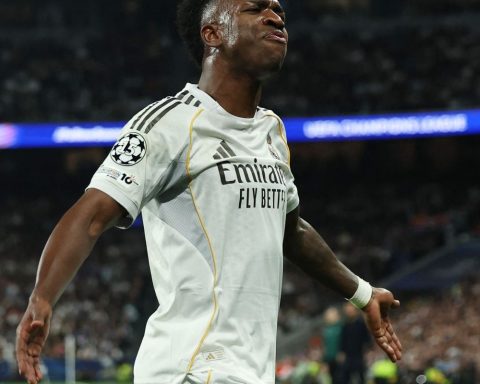For the former guerrilla commander, Mónica Baltodano, the reason for Vice President Rosario Murillo’s contempt for “historical Sandinismo” is a certain complex, because she does not have a track record within the party and put on “the olive green uniform on July 19.”
According to Baltodano, the figure of Murillo provokes division and rejection in the Sandinista militancy itself, due to a series of actions marked by his authoritarianism, although, from the leadership headed by Daniel Ortega, he is seen as the “successor” as a way of guaranteeing “impunity”.
“The combatants were relegated to the bottom drawer of oblivion. And only taken into account, or taken out again to be used as paramilitaries in 2018”, says Baltodano, from Costa Rica, in an interview with the Esta Noche program, which is broadcast on the CONFIDENTIAL from YouTube.
The former commander, a critic of the FSLN for decades, analyzed the keys to the recent trial opened against Marlon Sáenz, known as “Chino Enoch” among the Sandinistas, for alleged crimes related to the drug traffickingafter his public criticism of Murillo on social networks.
Mónica, what does this trial represent for the FSLN militancy?
It is a warning for all the militancy, the state workers, for those who still support the regime, that any type of criticism can lead to repressive measures.
It is even clear that the regime is more cruel and poisonous against those of us who come from the ranks of Ortega, than those who come from the liberal or conservative ranks. This has been shown by the cruelty with which they are treating political prisoners of Sandinista origin in particular, and I am not only referring to figures such as Dora María Téllez, Ana Margarita Vijil, Suyén Barahona or Víctor Hugo Tinoco, but also to all those who were captured and tortured since 2018.
Last April, the militant Sandra Martínez denounced the police siege for attempting a meeting with a group of “historical”. The former deputy and former Sandinista mayor, Gerardo Miranda, spent a week in jail in El Chipote, reprimanded for “conspiring” with them. What do they represent today in the FSLN and why is Murillo trying to dismantle them?
Murillo does not have a combative history within the Sandinista Front. She put on the olive green uniform on July 19, before arriving at the Plaza de la Revolución, but her involvement in the anti-Somocista struggle was rather marginal. That is, as a poet she was involved in some very important activities from a cultural point of view.
But she didn’t have a combat history. I would say that it implies a certain complex for her, which manifested itself in those ten years (of the first Sandinista government) in certain claims. In the early 1990s, when we went into opposition, she tried by all means to join the Sandinista Assembly and she never forgave not being elected in 1991.
When she reaches spaces of power, she manifested a clear contempt for all of us who had a history. And she emphasized the new generations before whom she placed herself, or through an invented story—not only about her, but about Ortega himself—because if you ask the young people of the FSLN, they believe that he led all the fronts of the struggle.
For this reason, the combatants were relegated to the last drawer of oblivion. And only taken into account, or taken out again to use them as paramilitaries in 2018. If you look, it is until after the 2018 uprising, when some of them are brought back to the stage, giving them a role in the story of the fight against the supposed coup d’état.
Are these proofs that there are fissures in the FSLN?
There are many fissures, not just now, but from many years ago. Before the uprising, they already existed and one of the ones that has provoked the most is the role that Ortega has assigned to Rosario Murillo. (He himself) has been accompanied by a very arrogant, absolutely authoritarian, vertical relationship where he does not let anyone think differently from her in meetings.
For this reason, from one day to the next, ministers are removed from their positions, mayors, without mediating legal process. Anyone who disagrees in one way or another with respect to it is subjected to defenestration processes. So what does membership do? They not only criticize her in silence, in very small groups, or assume, as in the case of “Chino Enoch”, a more active and belligerent role, but taking care not to attack Ortega.
They emphasize an exacerbated Ortegaism, which borders on the most abject servility. They are Ortega’s bootlickers and they attack Rosario.
Surveillance within the FSLN
However, doesn’t this discomfort turn into a visible crisis?
Nor will it be transformed until the popular movement against the dictatorship can express itself with more possibilities. This always happens, that is to say, internal dissent does not manifest itself until it coincides with the external movement. If you don’t look at the collapse of socialism in Eastern Europe, where the zero institutional support of the militancy for its authorities, ended up bringing down the regime.
There are very deep fractures, but as long as the interests of the positions remain, the fear of repression also… The salary factor, employment, the high costs of living, the brutal situation to which people are being subjected will have an influence who has to emigrate, all these factors are going to converge at the moment in which these defections must take place.
Surveillance and political control has been extended to high officials, why? Is there a crisis of confidence?
It has been accentuated with the case of Arturo McFields. That was a very hard blow for the regime, since it was in a space with a high international presence such as the OAS, but also because Murillo is held responsible for having given him that role. Precisely as part of the new generations of Sandinismo.
On the one hand, the historical combatants accuse her of giving these young people an important role, but on the other hand, it is very clear that there is an important part of the constituted historical Sandinismo: commanders of the revolution such as Henry Ruiz, Luis Carrión, the Víctor Tirado himself—who they ended up using due to his health situation—all were commanders of the revolution like Humberto Ortega himself, who do not support the regime. But there is also a large number of guerrilla commanders.
On the other hand, there is a part of the historians who were used as key elements in the repression that claim Murillo, despite his docility or the role played in those circumstances, do not assign him the responsibility that they consider he should assume: charges and even solutions to serious material problems, because many of them have died in the most absolute poverty and abandonment.
How does this impact on the support of public employees?
There is cross surveillance. The “Chino Enoch” denounced not only Murillo, but also political secretaries, a lot of officials who had no history. They even came from Somocismo. The first vice president himself, with whom Ortega won the 2006 elections, was one of the main leaders of the Contras. Some point to the role that he has given to liberals like Wilfredo Navarro.
They justly demand it, while at the same time they are watched, because they are mistrustful of situations such as that of “Chino Enoch”, or criticisms made in their meetings. That’s why they don’t let them meet anymore. On the other hand, some of them are needed because they continue to carry out surveillance functions in the neighborhoods.
Others have fallen into disgrace for having criticism, not only with Rosario, but with the mayors. I know people who clearly disagree with the one in Matagalpa, of mayors who have been re-elected over and over again. It is a situation that cannot be simplified: there is everything, but there is definitely a fracture and internal friction.
Death of Hugo Torres
How do you explain the silence of the Army in the face of the death in jail of the political prisoner, retired general Hugo Torres? Did that have an internal impact?
Yes, it did, and it is also manifested only by the most intimate circle. It was a shameful attitude of the Army, for not having paid the tribute that a former general deserved with the history of Hugh Torres. And it shows the total lack of institutional independence, the sheepish and servile attitude of the head of the Army, and that obviously had its consequences. The capture of Dora María (Téllez), the situation of Víctor Hugo Tinoco, or the death of Torres, have been piercing the cohesion that one could see in the Ortega ranks before 2018. All this generates disagreement that is aired very quietly. Because everyone is afraid of the other.
Doesn’t all this produce contradictions in the FSLN, or should they simply remain silent due to alleged party discipline?
Because of party discipline, fear, cowardice, many of them—simply for interests. Because they are living off the treasury, the benefits that the regime gives them and they are afraid of losing it. There is a factor of interest, material, economic that keeps them silent and some of them are going to die, justifying themselves with the story of the coup d’état.
What does Murillo represent for the historical Sandinistas and the family succession in power?
Perhaps, in the first place, Daniel Ortega did not think that who was going to succeed him in power was Rosario Murillo, I think that now he does. The only way to guarantee impunity is through dynastic succession. To the extent that they have been accused of crimes against humanity, they are even afraid of their own shadow.
And would the “historical” be willing to accept Murillo?
I think not. A succession, resting on Rosario Murillo, would generate an internal crisis with no solution. Her role does not create sympathy, the way she has exercised power. She is authoritarian, despotic, and that does not contribute to her succession guaranteeing the continuity of Ortega.
